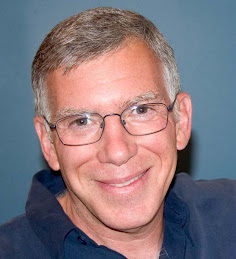I received an email recently from a very good friend who had read my book, and is currently reading the 2007 work by Nassim Nicholas Taleb entitled "The Black Swan".
My friend cited the following passage in Taleb's book which he felt pertained to my book:
Numerous studies of millionaires aimed at figuring out the skills required for hotshotness follow the following methodology. They take a population of hotshots, those with big titles and big jobs, and study their attributes. They look at what those big guns have in common: courage, risk taking, optimism, and so on, and infer that these traits, most notably risk taking, help you to become successful. You would also probably get the same impression if you read CEO's ghostwritten autobiographies or attended their presentations to fawning MBA students.
Now take a look at the cemetery. It is quite difficult to do so because people who fail do not seem to write memoirs, and if they did, those business publishers I know would not even consider giving them the courtesy of a returned phone call (as to returned e-mail, fuhgedit). Readers would not pay $26.95 for a story of failure, even if you convinced them that it had more tricks than a story of success. The entire notion of biography is grounded in the arbitrary ascription of a causal relation between specified traits and subsequent events. Now consider the cemetery. The graveyard of failed persons will be full of people who shared the following traits: courage, risk taking, optimism, etc. Just like the population of millionaires.
Rather interesting, wouldn't you say?
I can certainly attest to the bias against stories of "unsuccess", as I was advised by a number of people that no one would either publish or purchase a book with the negative-sounding title "Don't Let Your Dream Business Turn Into a Nightmare", not to mention a website called http://www.mybusinessnightmare.com/. However, I must also add that my phone calls and emails to the three Canadian publishers to whom I submitted my book were returned, and, in fact, the Managing Editor of one of them said that my book was "one of the most original business books" he had ever read". In fact, it was his comment that my book "belongs on the syllabus of every M.B.A. program in the country" that inspired me to self-publish and self-market the book.
I should also state that people have purchased the book, as well, although I have only just begun to figure out what it takes to publish and promote a book yourself. I haven't done the latter - I am just beginning to figure out what I need to do.
What I find most interesting about the passage from Taleb's book cited above is the inference that books about failure ( I prefer to use the term "unsuccess" to refer to my book as the business I founded has not failed) can be as instructive, if not more instructive, than books dealing with success. That is the very reason why I wrote my book, and subtitled it "A Cautionary Tale for Would-Be Entrepreneurs", and also why I hope that everyone who is either considering starting a small business or studying entrepreneurship in school will read my book.
As for the contention in Taleb's book that cemeteries are filled with unheralded "failures" who had just as much courage as famous "successes" - well, I'm not there yet, nor am I in any hurry to get there, but I appreciate the sentiment.
Bottom line: read my book and let me know if you agree with Nassim Nicholas Taleb's comments. And read his book "The Black Swan" too. Sounds interesting.
Wednesday, February 17, 2010
Subscribe to:
Post Comments (Atom)




No comments:
Post a Comment